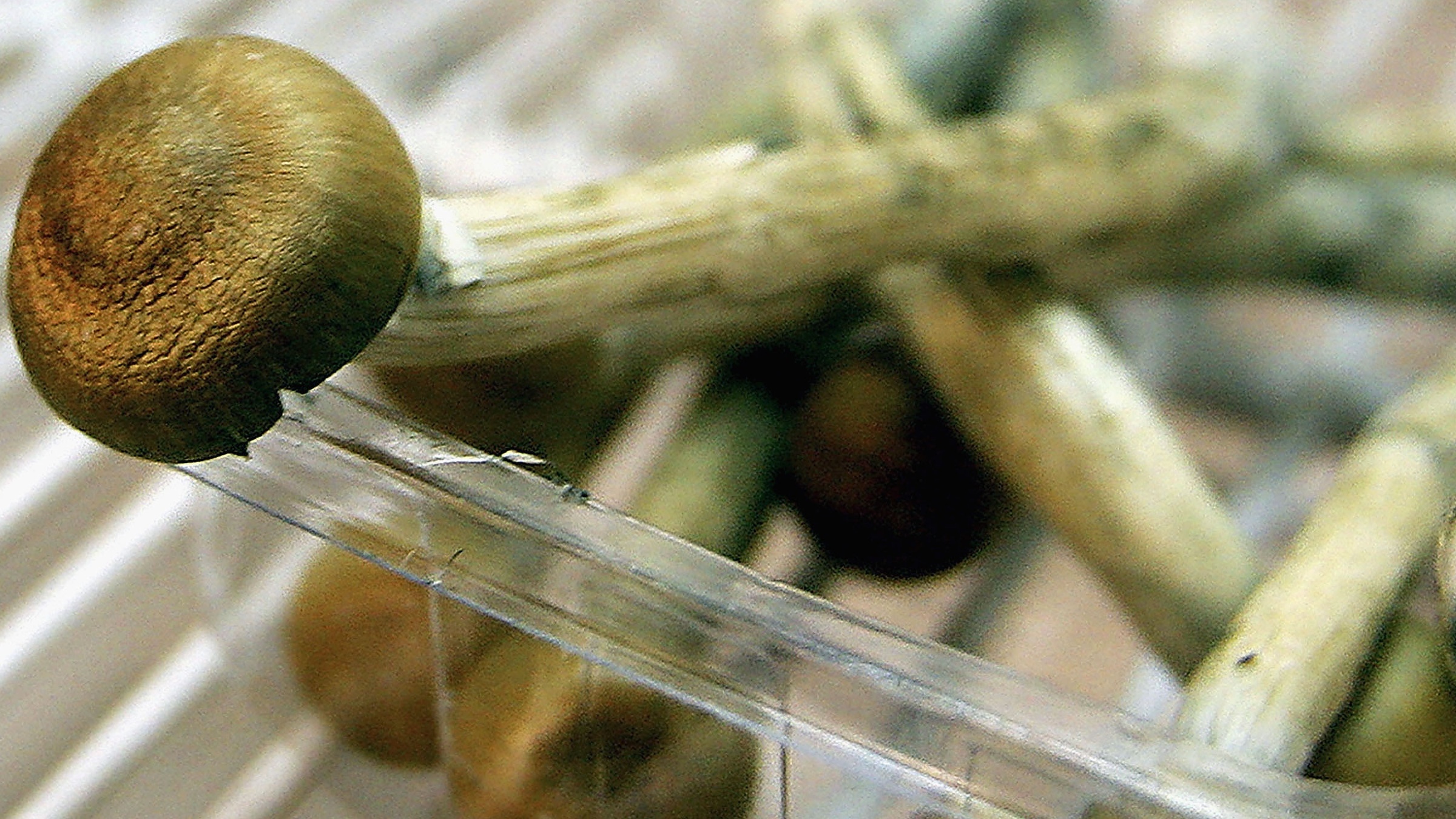How magic mushrooms may be used to treat depression
Psilocybin as effective as antidepressants at treating depression, study finds

A free daily email with the biggest news stories of the day – and the best features from TheWeek.com
You are now subscribed
Your newsletter sign-up was successful
The chemical compound that gives magic mushrooms their psychedelic effect could be a promising new treatment for depression, scientists have found.
A small trial conducted by scientists from Imperial College London has found that two doses of psilocybin “appears to be as effective as the common antidepressant escitalopram in treating moderate to severe major depressive disorder”, reports The Guardian.
The treatment was administered in combination with psychological therapy in a six-week trial, where 30 out of 59 adults with the disorder were randomly chosen to receive two 25mg doses of psilocybin three weeks apart, a dose high enough to produce “existential” or “mystical” effects, reports the paper.
The Week
Escape your echo chamber. Get the facts behind the news, plus analysis from multiple perspectives.

Sign up for The Week's Free Newsletters
From our morning news briefing to a weekly Good News Newsletter, get the best of The Week delivered directly to your inbox.
From our morning news briefing to a weekly Good News Newsletter, get the best of The Week delivered directly to your inbox.
The remaining participants were given two low “inactive” doses of psilocybin three weeks apart, to ensure differences in outcomes were not simply due to the expectation of being given the active ingredient. Participants were then given a daily dose of escitalopram, the day after the first dose of psilocybin, which was gradually increased in strength throughout the trial.
The study found that “while depression scores were reduced in both groups”, the group who had been given higher doses of psilocybin had their scores reduce “more quickly” and were “greater in magnitude”, say researchers at the Centre for Psychedelic Research at Imperial College London.
The study found that 57% of patients in the high-dose psilocybin group were judged to be in remission for their depression by the end of the six weeks, compared with 28% in the escitalopram group, while neither group had serious side-effects.
“The study is among the first to pit the psychedelic head-to-head with a traditional depression treatment”, says the BBC. Dr Robin Carhart-Harris, who co-authored the study, told the news organisation that participants reported feeling “recalibrated, reset like they haven’t for years” and “enjoying life”.
A free daily email with the biggest news stories of the day – and the best features from TheWeek.com
“They get more at the root cause of suffering [rather than] plastering over or muting their symptoms.“
But Guy Goodwin, a professor of psychiatry at the University of Oxford, warned the study was “not a quantum leap” in the treatment of depression.
“It is under-powered and does not prove that psilocybin is a better treatment than standard treatment with escitalopram for major depression,” he said. “However, it offers tantalising clues that it may be”.
Researchers cautioned that this was a small trial, the study has several limitations, and that more data was needed on psilocybin before it could be used outside research.
Researchers from the study said: “We look forward to further trials, which if positive should lead to psilocybin becoming a licensed medicine.”
-
 My Father’s Shadow: a ‘magically nimble’ film
My Father’s Shadow: a ‘magically nimble’ filmThe Week Recommends Akinola Davies Jr’s touching and ‘tender’ tale of two brothers in 1990s Nigeria
-
 Send Help: Sam Raimi’s ‘compelling’ plane-crash survival thriller
Send Help: Sam Raimi’s ‘compelling’ plane-crash survival thrillerThe Week Recommends Rachel McAdams stars as an office worker who gets stranded on a desert island with her boss
-
 ‘Longevity fixation syndrome’: the allure of eternal youth
‘Longevity fixation syndrome’: the allure of eternal youthIn The Spotlight Obsession with beating biological clock identified as damaging new addiction